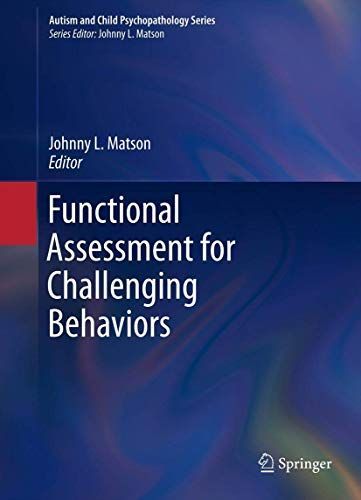
Functional Assessment for Challenging Behaviors
As the cornerstone of applied behavior analysis, functional assessment is supported by a burgeoning literature that focuses on identification of and interventions for aggressive, self-injurious, and other challenging behaviors. Although the number of research studies continues to grow, full-length volumes on using functional assessment to address these behaviors remain few and far between. Comprehensive in coverage, Functional Assessment for Challenging Behaviors expands the knowledge base by providing information on all aspects of its topic. This unique volume addresses basic questions in salient detail, from types and rates of challenging behaviors to populations that warrant functional assessment. In addition, it examines typical assessment techniques, including interview, scaling, experimental, and in vivo methods. The use of functional assessment in treatment planning – and in combination with other interventions – is covered in depth. An especially timely chapter identifies key ethical and legal concerns in working with challenging behavior populations. Coverage includes: The history of behavior analysis and functional assessment. The nature, prevalence, and characteristics of challenging behaviors. Interview and observation methods in functional assessment and analysis. Experimental functional analysis for challenging behaviors. Treatment methods commonly used with functional assessment. Using functional assessment in treatment planning. Functional Assessment for Challenging Behaviors is an essential resource for researchers, scientist-practitioners, and graduate students in clinical child and school psychology, pediatric psychiatry and medicine, social work, rehabilitation, and developmental psychology.